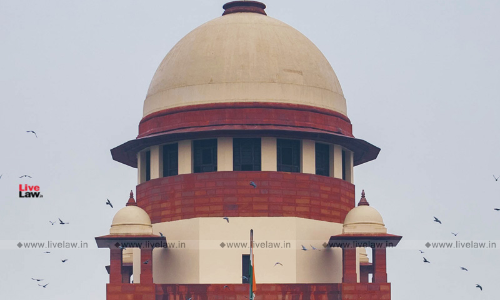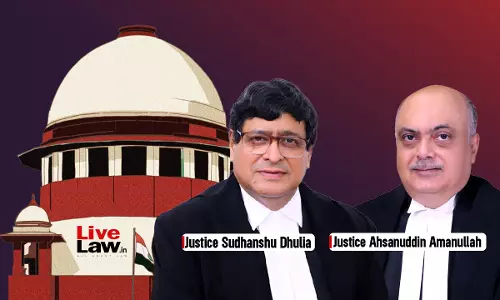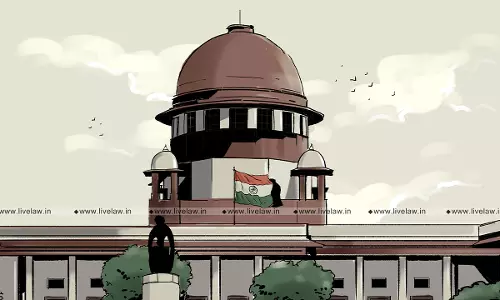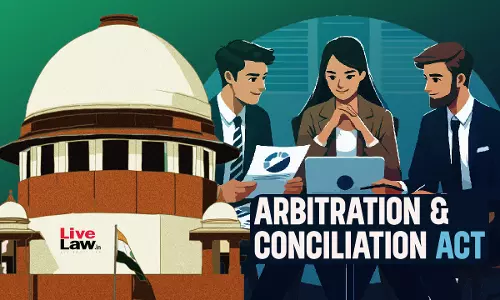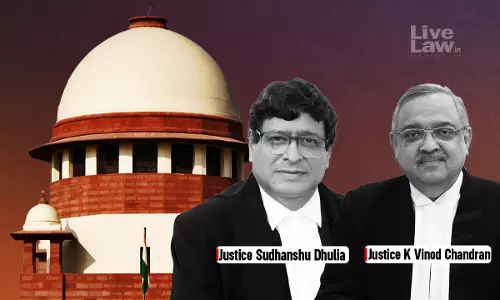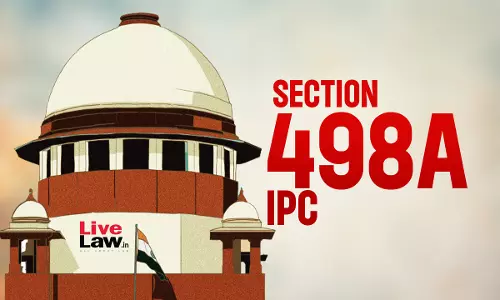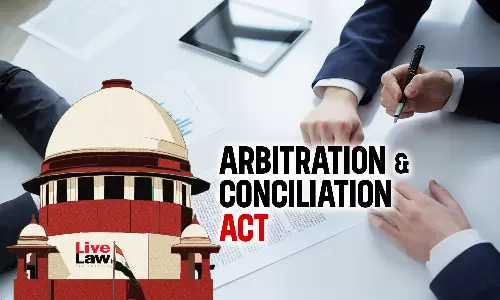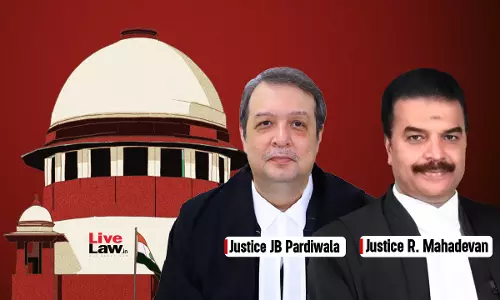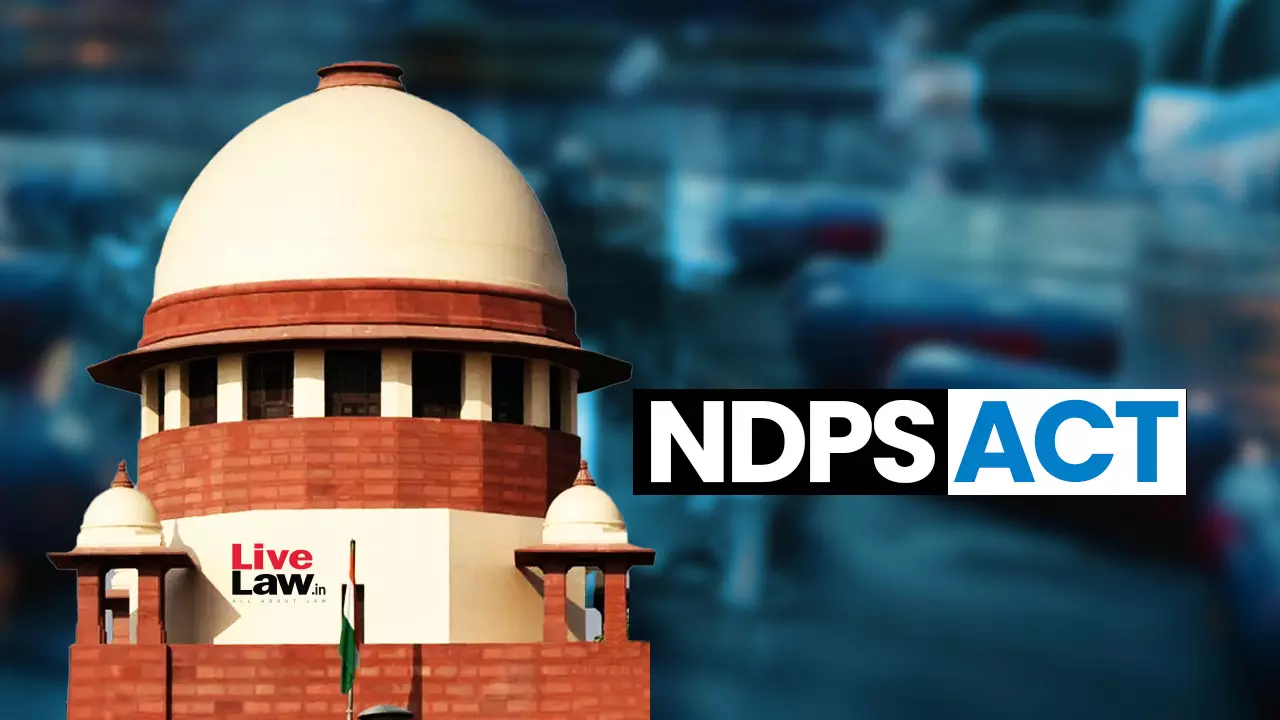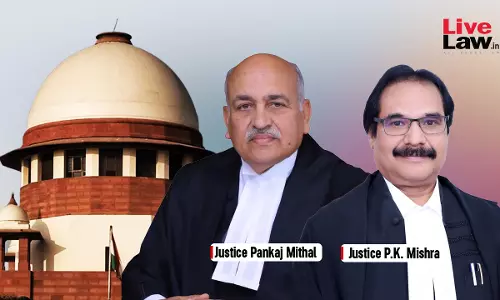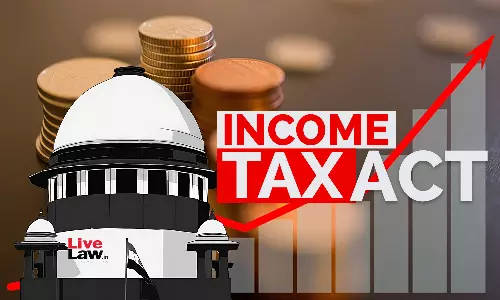Supreme court
Maharashtra Ownership Flats Act | Writ Court Shouldn't Interfere With Deemed Conveyance Order Unless Manifestly Illegal : Supreme Court
In a significant judgment related to the Maharashtra Ownership Flats Act, 1963 (“MOFA”), the Supreme Court on Monday (April 21) held that the competent authority under MOFA has the power to grant an order of deemed conveyance. It further emphasized that High Courts should not interfere with such orders unless they are found to be illegal. The bench of Justice Abhay S. Oka and Justice...
Legal Heirs' Suit Against Compromise Decree Not Maintainable When Original Party Didn't File Recall Application : Supreme Court
The Supreme Court yesterday (April 21) reiterated that the only option to assail the correctness of the compromise decree passed under Order 23 Rule 3 CPC is to file a recall application. “The only remedy against a compromise decree is to file a recall application.”, the court said. Holding thus, the Court dismissed an appeal where the Appellants were aggrieved by the impugned...
Absence Of Motive No Ground For Acquittal When There Exists Strong Circumstantial Evidence : Supreme Court
The Supreme Court observed that the absence of motive will not be fatal to the prosecution's case if there exists strong circumstantial evidence proving the guilt of the accused beyond a cavil of doubt. The Court said that “when the circumstances are very convincing and provide an unbroken chain leading only to the conclusion of guilt of the accused and not to any other hypothesis; the...
ESI Act | Person In Supervisory Role Liable For Non-Remittance Of Contributions Regardless Of Designation : Supreme Court
The Supreme Court observed that a person, irrespective of their official designation, may be deemed a 'principal employer' under the Employees' State Insurance Act, 1948 (“ESI Act”), if they act as an agent of the owner or occupier of a factory, or if they supervise and control the establishment in question. Holding thus, the bench comprising Justices Sudhanshu Dhulia and...
Supreme Court Flags Long Submissions In S.34/37 Arbitration Act Proceedings, Says Timelimit Needs To Be Imposed
On April 21, the Supreme Court expressed its displeasure over the prolonged arguments and submissions made by members of the Bar in arbitration proceedings under Sections 34 and 37 of the Arbitration and Conciliation Act, 1996.The Court noted that excessively long oral submissions force judges to invest significant time in reviewing extended arguments, often supported by a large volume of...
Defective Investigation Does Not Automatically Vitiate Prosecution's Case, If Other Relevant Evidence Exists: Supreme Court
The Supreme Court recently observed that the flaws in the investigation would not automatically be fatal to the prosecution's case when other credible evidence exists. The Court, affirming this position, upheld the conviction of the Appellant, who had sought acquittal on the ground of a faulty investigation. However, upon carefully examining the record and finding other reliable and...
Arbitral Tribunal Can Proceed Against Party Though They Weren't Served With S.21 Notice Or Made Party In S.11 Application : Supreme Court
The Supreme Court recently observed that not being served with the notice invoking arbitration under Section 21 of the Arbitration and Conciliation Act, and not being made a party in the Section 11 application (for appointment of arbitrator), are not sufficient grounds to hold that a person cannot be made party to arbitral proceedings. "A notice invoking arbitration under Section 21 of the ACA...
Proposed Purchaser Under Agreement To Sell Can't Sue Third Party Who Claims Title & Possession Of Property : Supreme Court
The Supreme Court recently held that a proposed purchaser under an agreement to sell cannot file a suit for a permanent injunction seeking the protection of the vendor's interest in the property against a third party with whom there exists no privity of contract. The Court clarified that only the vendor has the right to seek protection of their interest in the property, as an agreement to...
Dealing With Substance Mentioned In NDPS Act Schedule Is An Offence Though It's Not Listed In Schedule Of NDPS Rules : Supreme Court
The Supreme Court observed that activities involving a psychotropic substance listed in the NDPS Act's Schedule, but not in Schedule I of the NDPS Rules, constitute an offence under Section 8(c) of the NDPS Act. The bench comprising Justices JB Pardiwala and Manoj Misra heard the case where the Respondent-accused was found in possession of Buprenorphine Hydrochloride, a psychotropic...
Res Judicata Principle Applies In Criminal Proceedings; Findings In One Case Bind Parties In Subsequent Case : Supreme Court
The Supreme Court recently explained that the principle of res judicata is applicable to criminal proceedings, and hence, the findings of fact recorded by a criminal court would be binding on both parties in any subsequent proceedings involving the same issue.In holding so, the Court explained the perceived divergence between two lines of decision.One line of cases, with the leading case...



